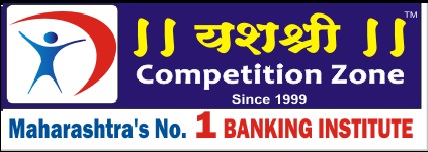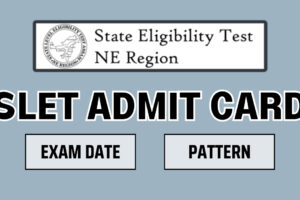Making a Career Choice: SSC CGL vs. Bank PO

Introduction:
Choosing the right career path can be a daunting decision, especially when you have multiple options to consider. Two prominent choices for aspirants in India are the Staff Selection Commission Combined Graduate Level (SSC CGL) and Bank Probationary Officer (Bank PO) examinations. Both offer rewarding careers in the government sector, but the paths they follow and the roles they entail are quite distinct. In this blog post, we will delve into the factors you should consider when making a career choice between SSC CGL and Bank PO.
1. Self-Assessment:
The first step in making this crucial decision is to conduct an honest self-assessment. Consider your interests, strengths, and career goals. SSC CGL primarily offers opportunities in various government departments, while Bank PO positions are primarily in the banking sector. Think about where your passion lies and which role aligns better with your long-term career aspirations.
2. Job Role and Responsibilities:
the jobs and responsibilities between SSC CGL (Staff Selection Commission Combined Graduate Level) positions and Bank PO (Probationary Officer) positions. Both of these career paths offer government job opportunities in India, but they come with distinct roles and responsibilities.
SSC CGL Positions:
- Inspector (Income Tax/Customs/Excise):
- SSC CGL offers roles as inspectors in various tax departments. Responsibilities include tax assessment, audit, and tax collection.
- Inspectors are responsible for ensuring compliance with tax laws and regulations.
- Assistant Audit Officer:
- Assistant Audit Officers perform auditing functions in government departments.
- They examine financial records, conduct audits, and ensure financial transparency.
- Assistant Section Officer (ASO):
- ASOs work in various government ministries and departments.
- Their responsibilities include administrative tasks, file management, and decision-making support.
- Assistant Enforcement Officer (AEO):
- AEOs work with the Directorate of Enforcement and handle cases related to money laundering and foreign exchange violations.
- They conduct investigations and enforce economic laws.
- Statistical Investigator (Grade-II):
- Statistical Investigators collect and analyze data for government departments.
- They play a crucial role in policymaking and planning.
- Central Secretariat Service (CSS) Assistant:
- CSS Assistants work in the central secretariat and assist in policy formulation, decision-making, and implementation.
Bank PO Positions:
- Probationary Officer (PO):
- Bank POs start as trainees and go through probationary periods.
- Their responsibilities include customer service, handling financial transactions, managing bank operations, and promoting bank products.
- Assistant Manager (Scale I Officer):
- After successful completion of the probationary period, POs are promoted to Assistant Managers.
- They take on more responsibilities related to branch management, loan processing, and supervising staff.
- Branch Manager (Scale II Officer):
- With experience and performance, Bank POs can progress to Branch Manager positions.
- Branch Managers are responsible for the overall functioning of a bank branch, including customer service, staff management, and meeting targets.
- Regional Manager (Scale III Officer):
- Further career progression can lead to Regional Manager roles.
- Regional Managers oversee multiple branches, ensure compliance with regulations, and drive business growth in their region.
Key Comparisons:
- Nature of Work:
- SSC CGL jobs often involve administrative and regulatory functions in various government departments.
- Bank PO positions revolve around banking operations, customer service, and financial transactions.
- Job Security:
- Both SSC CGL and Bank PO jobs offer high levels of job security, but government jobs (SSC CGL) are generally considered more secure.
- Work Hours:
- SSC CGL positions often have regular working hours.
- Bank POs may have longer working hours, especially during peak banking hours and when handling customer transactions.
- Location of Work:
- SSC CGL postings are typically less subject to transfers compared to Bank PO roles, which may require flexibility in terms of location.
- Promotion and Career Growth:
- Both SSC CGL and Bank PO positions offer opportunities for career advancement, but the progression criteria and promotional avenues differ.
Ultimately, the choice between SSC CGL and Bank PO should be based on your interests, career goals, and personal preferences regarding the nature of work, job security, work hours, and location. Both career paths can lead to rewarding and stable government jobs, but they cater to different skill sets and professional interests.
3. Work-Life Balance:
Work-life balance can vary between these careers. SSC CGL jobs often have regular working hours and fewer transfers, while Bank PO roles may involve long working hours and occasional transfers. Consider your lifestyle preferences and what level of work-life balance you desire in your career.
4. Salary and Benefits:
let’s compare the salary and benefits associated with Bank Probationary Officer (Bank PO) positions and Staff Selection Commission Combined Graduate Level (SSC CGL) positions in India. It’s important to note that salaries and benefits can vary depending on the specific bank or government department, as well as location and other factors. Below is a general comparison:
Bank PO Salary and Benefits:
- Basic Pay: The basic pay for a Bank PO usually falls in the range of ₹23,700 to ₹42,020, depending on the bank and location. It can vary among public sector banks, with higher-paying banks typically located in metropolitan areas.
- Dearness Allowance (DA): Bank POs receive a certain percentage of the basic pay as DA, which is revised periodically based on inflation. It can range from 46% to 72% of the basic pay.
- House Rent Allowance (HRA): HRA varies depending on the location. In metropolitan cities, it can be as high as 9-10% of the basic pay.
- Special Allowance: Bank POs receive a special allowance, which can vary but is typically around 7.75% of the basic pay.
- Other Benefits: Bank employees, including POs, are entitled to medical benefits, pension schemes, and various other allowances such as travel and furniture allowances.
- Performance-Based Bonuses: Many banks offer performance-based bonuses and incentives to encourage employees to meet targets and achieve excellence.
- Perquisites: Bank employees may receive additional benefits like concessional loans, leave travel concessions, and insurance coverage.
SSC CGL Salary and Benefits:
- Pay Scale: SSC CGL jobs come under various pay scales, depending on the specific position and department. The pay scales range from ₹25,500 to ₹81,100.
- Grade Pay: Some SSC CGL positions also offer grade pay, which can vary. Grade pay is used to calculate the total salary.
- Dearness Allowance (DA): DA is provided to SSC CGL employees and is revised regularly based on inflation. It can range from 17% to 28% of the basic pay.
- House Rent Allowance (HRA): HRA is provided based on the location of the posting. In metropolitan cities, it can be as high as 24% of the basic pay.
- Transport Allowance: Employees in SSC CGL positions receive transport allowances, which vary based on the type of city (metropolitan or non-metropolitan).
- Other Allowances: SSC CGL positions may offer other allowances such as medical, educational, and special allowances, depending on the department and specific role.
- Pension and Provident Fund: SSC CGL employees are entitled to pension and provident fund benefits, providing financial security in the long term.
- Performance-Based Bonuses: Some departments may offer performance-based bonuses and incentives.
Key Comparisons:
- Bank POs tend to have a more structured and predictable salary scale, but SSC CGL salaries can vary widely depending on the specific role and department.
- SSC CGL positions often provide a higher starting basic pay compared to Bank PO positions.
- Both Bank POs and SSC CGL employees receive benefits such as DA, HRA, and medical allowances, but the exact amounts can differ.
- Bank employees typically have access to additional financial perks like concessional loans, while SSC CGL positions may offer other non-monetary benefits.
When making a career choice between Bank PO and SSC CGL, it’s essential to consider not only the salary but also the nature of the job, growth opportunities, work-life balance, and personal preferences. Salaries are just one aspect of the overall compensation package, and each career path comes with its own set of advantages and disadvantages.
5. Growth Opportunities:
Comparing the growth opportunities in SSC CGL (Staff Selection Commission Combined Graduate Level) positions and Bank Probationary Officer (Bank PO) positions involves considering factors like promotions, career progression, and long-term prospects. Below, I’ll provide a comparison of the growth opportunities in these two career paths:
Growth Opportunities in SSC CGL:
- Promotions: In SSC CGL, the rate of promotion can vary depending on the specific department and role. Some positions have a clear promotional hierarchy, while others may offer slower progression. Promotions typically involve moving up to higher grades or ranks within the department.
- Departmental Exams: Many SSC CGL positions require employees to appear for departmental exams to get promoted to higher levels. The criteria for promotion may include years of service, performance evaluations, and exam scores.
- Seniority-Based: In some SSC CGL positions, promotions are based on seniority, meaning that employees with more years of service are given preference for higher-level positions.
- Limited Lateral Movement: SSC CGL positions usually do not involve lateral movement to other government departments. Career progression is generally within the same department.
- Specialized Roles: Some SSC CGL positions may provide opportunities for specialization in specific areas, which can be beneficial for career growth.
- Higher Administrative Roles: In some cases, SSC CGL positions can lead to higher administrative roles within government departments, but this often requires years of service and consistent performance.
Growth Opportunities in Bank PO:
- Structured Promotion Hierarchy: Bank PO positions have a well-defined promotion hierarchy, typically involving progression from Probationary Officer to Assistant Manager to Branch Manager, and so on.
- Performance-Based: Promotions in banking are often performance-based. Meeting targets, demonstrating leadership skills, and achieving results can lead to faster promotions.
- Lateral Movement: Banks offer lateral movement opportunities, allowing employees to switch between different banking roles or departments, such as retail banking, corporate banking, or credit.
- Fast-Track Promotion: Some banks have fast-track promotion schemes that can significantly accelerate career growth for high-performing individuals.
- Specialized Roles: Bank POs can also move into specialized roles like credit analysis, risk management, or investment banking within the same bank.
- Regional and Zonal Roles: As Bank POs progress, they may have the chance to take on regional or zonal roles, which involve overseeing multiple branches or regions.
Key Comparisons:
- Bank PO positions generally offer a more structured and faster promotion hierarchy compared to SSC CGL positions.
- Performance plays a significant role in promotions in the banking sector, incentivizing employees to excel in their roles.
- SSC CGL positions may have slower and more varied career progression, with promotions often contingent on departmental exams and seniority.
- While SSC CGL positions may offer specialized roles in government departments, they typically do not involve lateral movement to other departments.
Ultimately, the choice between SSC CGL and Bank PO should consider your career goals, work preferences, and long-term objectives. Each path offers its own unique growth opportunities, and what suits one person may not be the best fit for another. It’s essential to align your career choice with your personal aspirations and professional strengths.
6. Exam Preparation:
Preparing for competitive exams like SSC CGL (Staff Selection Commission Combined Graduate Level) and Bank PO (Probationary Officer) requires dedication, strategy, and consistent effort. While there are commonalities in exam preparation, there are also differences in the content, syllabus, and approach needed for each exam. Here’s a comparison of exam preparation for SSC CGL and Bank PO:
1. Exam Syllabus:
SSC CGL:
- SSC CGL has a wide-ranging syllabus that covers subjects such as General Awareness, English Language, Quantitative Aptitude, and Reasoning.
- There is a dedicated tier for descriptive paper, which includes Essay and Letter Writing.
Bank PO:
- Bank PO exams primarily focus on subjects like Reasoning Ability, Quantitative Aptitude, English Language, General Awareness, and Computer Knowledge.
- Bank exams may include sections on Data Interpretation and Banking and Financial Awareness.
2. Quantitative Aptitude and Data Interpretation:
SSC CGL:
- The quantitative aptitude section in SSC CGL tends to be more extensive, covering advanced mathematics topics like trigonometry and geometry.
- Data Interpretation is not a significant component in SSC CGL.
Bank PO:
- Bank PO exams emphasize Data Interpretation, and questions related to this topic are common.
- Quantitative aptitude in Bank PO exams focuses more on arithmetic and basic mathematics.
3. Reasoning Ability:
SSC CGL:
- The reasoning section in SSC CGL includes a wide variety of topics, including logical reasoning, coding-decoding, and puzzles.
- It may involve complex logical reasoning questions.
Bank PO:
- The reasoning section in Bank PO exams often includes questions related to puzzles, seating arrangement, and data sufficiency.
- The focus is on assessing analytical and problem-solving skills.
4. General Awareness:
SSC CGL:
- General Awareness in SSC CGL covers a broad range of topics, including current affairs, history, geography, and science.
- Candidates need to be aware of national and international events.
Bank PO:
- General Awareness for Bank PO exams focuses more on banking and financial awareness, with an emphasis on recent developments in the banking sector.
5. English Language:
SSC CGL:
- English Language in SSC CGL includes grammar, vocabulary, comprehension, and writing skills.
- The descriptive paper assesses essay and letter writing.
Bank PO:
- English Language in Bank PO exams evaluates candidates’ proficiency in grammar, comprehension, vocabulary, and verbal ability.
6. Computer Knowledge:
SSC CGL:
- SSC CGL does not typically have a dedicated section for computer knowledge.
Bank PO:
- Bank PO exams include a section on computer knowledge, which assesses basic computer terminology and concepts.
7. Mock Tests and Practice:
For both SSC CGL and Bank PO exams, it’s crucial to practice with mock tests and previous years’ question papers. Regular practice will help you understand the exam pattern, improve your time management, and identify your strengths and weaknesses in different sections.
8. Coaching vs. Self-Study:
The choice between coaching and self-study depends on your learning style, resources, and preferences. Some candidates benefit from structured coaching, while others excel through self-study with the help of books, online resources, and study groups.
In conclusion, while there are similarities in exam preparation strategies, there are also significant differences in the content and focus of SSC CGL and Bank PO exams. It’s essential to tailor your preparation plan to the specific requirements of the exam you are aiming for and allocate your study time accordingly. Regardless of the exam, consistency, practice, and a well-structured study plan are key to success.
7. Conclusion:
Ultimately, the decision between SSC CGL and Bank PO should be based on a thorough assessment of your interests, career goals, lifestyle preferences, and the specific aspects of each career path. There is no one-size-fits-all answer, as what suits one person may not be the best choice for another. Take your time, gather information, seek advice from professionals in the field, and make an informed decision that aligns with your personal and professional aspirations. Both careers offer fulfilling opportunities, and with dedication and hard work, you can excel in either path.



